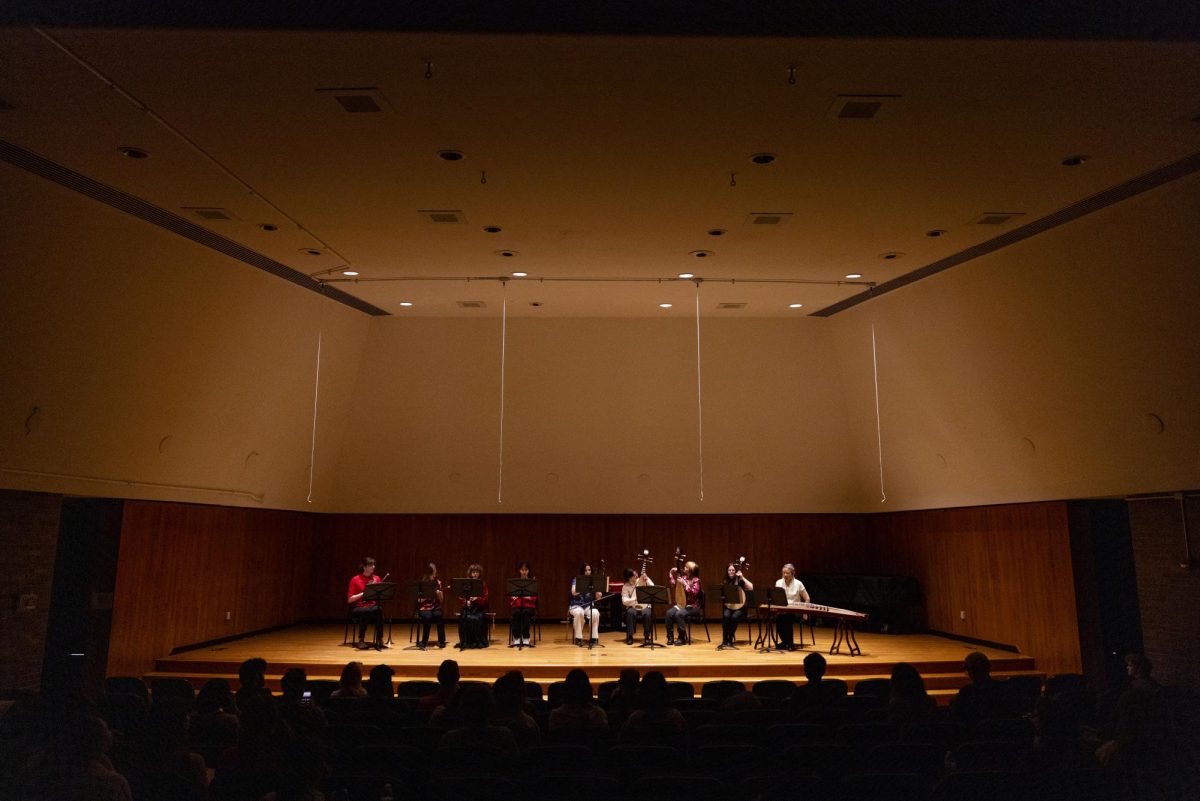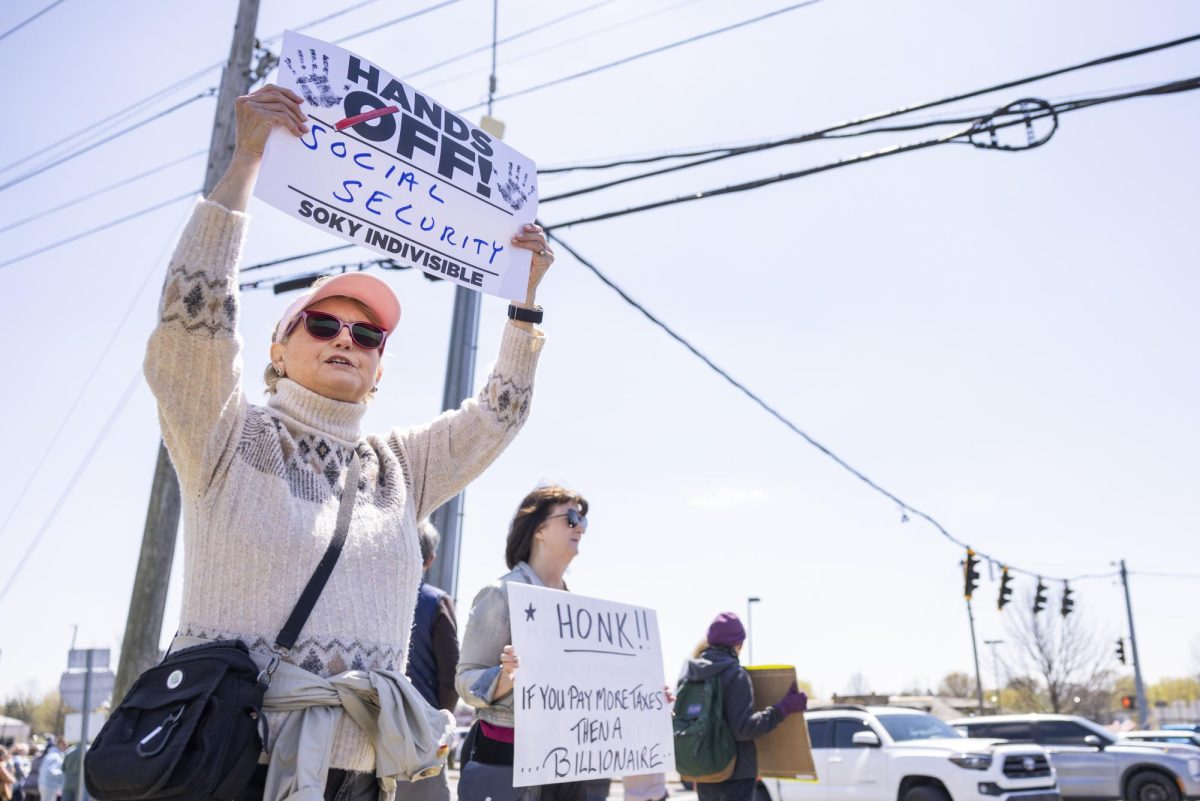Local residents share views on immigration
March 22, 2017
The landscape of the American thinking suddenly reached a new height when then-presidential candidate Donald Trump campaigned on the fact that if elected the President of United States of America, he would build a wall between Mexico and America.
While some people took up to protest his campaign, others like Justin Burr saw the positive impact of the ideology behind the wall. The 38-year-old Bowling Green resident and business owner may not find logic in spending money on the physical erection of a wall, but he supports the concept President Trump is trying to achieve.
“I think if people look further into the deal, you have whatever nationalities came here legally and ask them about the same exact issue; I think more times than not they are going to agree with me,” Burr said. “It is just like cutting the line to the shoulder at the interstate.”
Burr said a lot of people who have been supporting the wall get labeled as “racist against Mexicans,”
“The wall is just a picture. It is all a mental game,” he said.
In 2008, “Yes We Can” was the optimistic mantra used by former President Obama to drive his candidacy, “Build That Wall” has similarly stirred the innate patriotism among the Trump supporters as a phrase that safeguards the “American Dream.”
Quoted under the 30 of Donald Trump’s wildest quotes in CBS News, in June 2015 during the Grand Old Party Campaign, Trump said “I will build a great wall — and nobody builds walls better than me, believe me — and I’ll build them very inexpensively. I will build a great, great wall on our southern border, and I will make Mexico pay for that wall. Mark my words.” What Trump’s wall hopes to accomplish is to create a permanent halt on immigrants crossing the country border without proper documentation and taking away jobs from the American market.
As reported by Reuters, the Department of Homeland Security estimated the cost of building the wall on the southern border at $21.6 billion with a three-and-a-half-year construction period. On September 1, 2016, the presidential candidate Trump tweeted out “Mexico will pay for the wall.” Although, it is not clear as to how President Trump will make that happen.
According to a recent article by Washington Post written by national correspondent Philip Bump, Trump’s team has suggested that one mechanism for forcing Mexico to pay for the wall is by increasing tariffs on Mexican products sold in the United States. Those increased costs would be borne by American consumers, but this would get Mexico to pay out of pocket to protect its industries. But, the details still remain unclear. Various prototypes of the wall will be presented to the President in the coming months, as stated in another Washington Post article.
A 48-year-old small business owner of Las Pal Mas-a Hispanic grocery store from El Salvador, Rosalio Guillen, said that there is nothing anybody can do about the way Trump is leading the country. Guillen, who has lived legally in America for 25 years, feels upset for Mexican customers and their families.
“Most people come here to achieve dream of a better life for their family,” Guillen said, standing behind the cash counter while helping a customer as his young daughter runs around the store. “And now they’re scared to go work or go to the shop.”
Moving from Michigan in 2012, John Hael, 46, is a Corvette assembly worker at Bowling Green. “We got to know who is coming in and who is going out,” he said while Chalking the pool cue at Overtime Bar and Grill. “You don’t need a wall. Maybe just an outpost. With technology today, if you have an outpost you can watch and keep an eye.”
Hael feels that constructing the wall is a good hypothetical idea and will help the country to keep a check on the “bad apples.” But, at the same time, he feels that expense of the wall is a big factor that would have a huge impact on the economy of the country. “There are ways of doing things legally that everybody keeps forgetting about,” he said.
The idea of the wall has left Mexicans residing in America scared about their future in the country. But, people like Javier Villanuella feel strong and ready for the fight. The 53-year-old server at El Mazatlan restaurant is appalled by Trump’s presidency. “Trump is like Hitler, Lenin, and Mussolini,” Villanuella said. “He cares about himself and only himself.”
Villanuella legally moved to Bowling Green in 2007 and has worked hard to make a living for himself. He regularly pays his bills, his taxes, prides the fact that he has no criminal record and is currently in the process of getting his American residency. “Not everybody is a criminal and want to deal drugs,” he said.
He strongly feels that none of the immigrants in the country, whether legal or illegal, are after the American jobs.
“American people do not like to do hard jobs,” he said. The idea of a wall on the border upsets him. “My thinking will not change his mind or the world,” he said.
While there are people who support the wall and people who are against the wall, between them there is a segment of people who do not want to bother themselves about the issue. A saleswoman by day and a bartender by night, Bethany Wethington, 30, a resident of Bowling Green, does not care about the wall.
“The government is going to do what they want to do,” Wethington said. “It does not affect me at all. I just hope they do not make me pay for it.”
Reporter Srijita Chattopadhyay can be reached at (270) 745-0655 and srijita.chattopadhyay524@topper.wku.edu.















